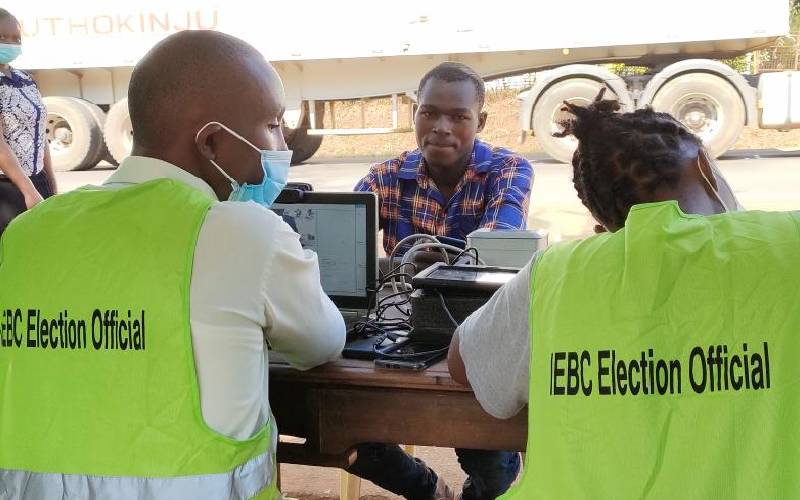×
The Standard e-Paper
Kenya’s Boldest Voice

IEBC polling clerks in Embu take details of a student at the University of Embu at a polling station in Embu town on September 6, 2021. [Muriithi Mugo, Standard]
The smooth running of the 2022 General Election depends on whether the Independent Electoral and Boundaries Commission (IEBC) is aptly funded.